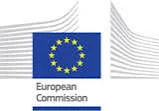ALLi's Dan Holloway wants to spread the word about an EU consultation on VAT on ebooks.
The EU has just launched a public consultation on the subject of VAT on ebooks. The consultation runs until 19th September. I want to outline very briefly in this post why, as indie authors, we should take part.
 The imposition of VAT (Value Added Tax) on ebooks is a subject that has taxed authors a great deal. There are two specific areas of concern. The first is that whilst printed books in many states benefit from a reduced or even a zero rate of VAT, that does not apply to ebooks, which has seemed to many to be a very strange situation. The preamble to the consultation explicitly states of print and digital that “they offer the same reading content for consumers and the VAT system needs to keep pace with the challenges of today's digital economy.”
The imposition of VAT (Value Added Tax) on ebooks is a subject that has taxed authors a great deal. There are two specific areas of concern. The first is that whilst printed books in many states benefit from a reduced or even a zero rate of VAT, that does not apply to ebooks, which has seemed to many to be a very strange situation. The preamble to the consultation explicitly states of print and digital that “they offer the same reading content for consumers and the VAT system needs to keep pace with the challenges of today's digital economy.”
Second, from 1 January 2015 it became law across the EU for suppliers to charge VAT to customers based on the customer’s country. There were sensible reasons for this (to do with companies not locating where tax was lowest) but it has caused chaos for many small businesses. What that meant for suppliers (that’s us) was that they had to identify the origin of every customer from within the EU and charge the appropriate rate. Whilst large distribution platforms such as Amazon have done the work for us, for many the nightmare is still real
I want to reproduce the consultation’s objective in full, because it shows that the scope explicitly addresses many of our concerns. As such, it essential for the author community in general, and the indie community who are also suppliers in particular, to make their feelings as clear as possible:
- Member States have the options to tax printed books, newspapers and publications at a reduced rate (minimum 5%) and some Member States were granted the applications of VAT rates lower than 5% (super-reduced rates) including exemptions with a deductions right of VAT at the preceding stage (so called zero rates) to certain printed publications. On the other hand, digital publications that are electronically supplied have to be taxed at the standard VAT rate.
- A harmonisation of VAT rates for electronically supplied services and in particular electronically supplied publications was a need until 2015. Since 1 January 2015, with the entry into force of new “place of supply” rules , VAT on all telecommunications, broadcasting and electronic services is levied where the customer is based, rather than where the supplier is located. Suppliers can therefore no longer benefit from being located in the Member State with the lowest VAT rates.
- While acknowledging the differences between printed and electronically supplied publications with regard to the format, they offer the same reading content for consumers and the VAT system needs to keep pace with the challenges of today's digital economy.
- Having carefully considered these issues, the Commission made a commitment in its 2016 Actions Plan on VAT (Com (2016) 148 final) indicating that it will make a legislative proposal in 2016 to allow Member States to apply to electronically supplied publications the same VAT rates that Member States can currently apply to printed publications.
The objective of the consultation is to seek the views on:
1. The commitment by the Commission in its 2016 Actions Plan on VAT to:
(a) allow Member States the application of reduced rates for electronically supplied publications
(b) allow Member States the application of super-reduced and zero rates for electronically supplied publications
2. The definition and scope of electronically supplied publications
3. The potential impacts of reduced rates for electronically supplied publications
The consultation can be found here.




Thank you for this useful information!
You can try also this one to promote ebooks for Free:
http://www.ebookstage.com/welcome/MTEwMA==/
[…] Here is some news about a consultation on VAT for ebooks. […]
[…] of the current European Union consultation on VAT on ebooks (go and take part if you haven’t!! Here’s why). This week, there was a very interesting piece in Publishing Perspectives about the rise of […]